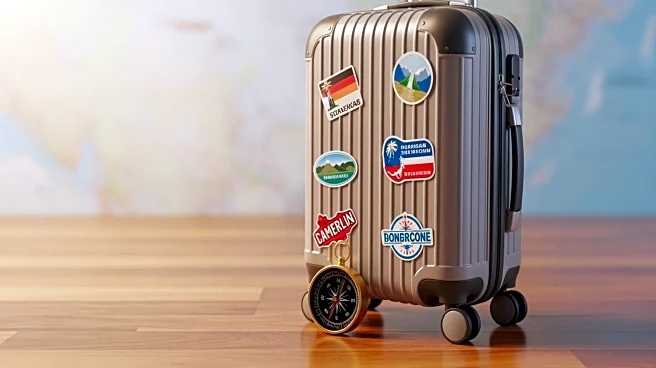What's Happening?
Travelers seeking affordable vacation deals often encounter the challenge of surge pricing, which can significantly increase the cost of trips. Surge pricing is prevalent across airlines, hotels, and vacation platforms,
making it difficult to secure deals at optimal times. Experts suggest several strategies to mitigate these costs. Booking travel well in advance, particularly before peak seasons, can help avoid price hikes. Tim Hentschel, CEO of HotelPlanner.com, advises booking flights and accommodations for the entire year early to hedge against inflation and cost increases. Additionally, using deal trackers like Google Flights, Hopper, or Kayak can alert travelers to price drops, allowing them to book at more cost-effective times. Flexibility in travel dates and avoiding limited-time promotions can also prevent travelers from falling into surge pricing traps.
Why It's Important?
The impact of surge pricing on travel costs is significant, affecting middle-class travelers who are budget-conscious. By understanding and implementing strategies to avoid surge pricing, travelers can save substantial amounts of money, making vacations more accessible. This is particularly important in the context of rising inflation and economic uncertainty, where every dollar saved can contribute to a more affordable travel experience. The travel industry, including airlines and hotels, benefits from consistent bookings, while consumers gain from reduced financial stress and increased travel opportunities. These strategies empower travelers to make informed decisions, potentially leading to a more competitive market where pricing is more transparent and fair.
What's Next?
As travelers become more aware of surge pricing strategies, there may be increased demand for tools and platforms that offer real-time pricing alerts and flexible booking options. Travel companies might respond by enhancing their pricing transparency and offering more flexible booking policies to attract cost-conscious consumers. Additionally, there could be a shift in consumer behavior towards planning vacations during off-peak times, which could influence how travel deals are structured and marketed. The ongoing dialogue between consumers and the travel industry may lead to innovations in pricing models and customer service enhancements.










